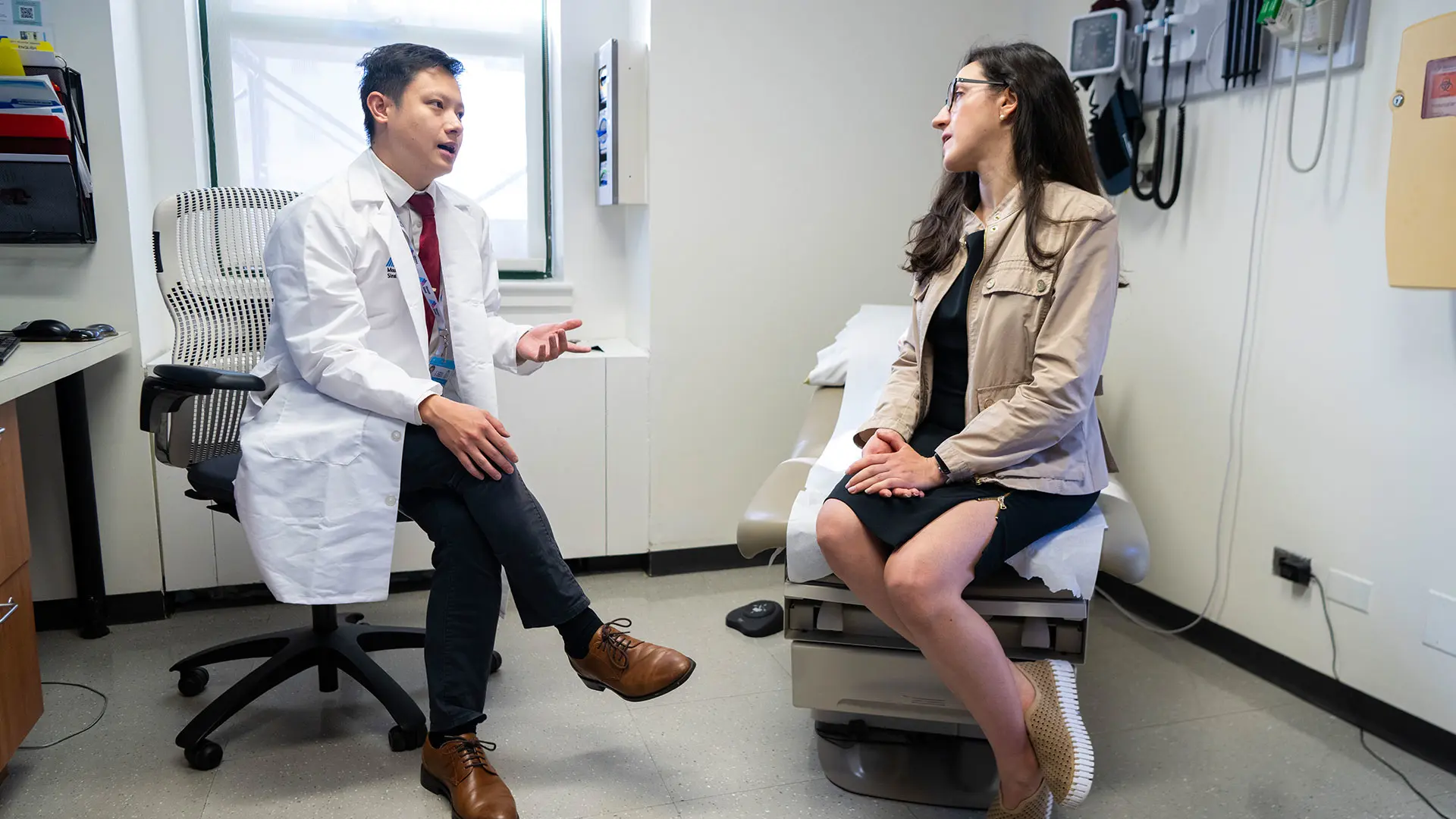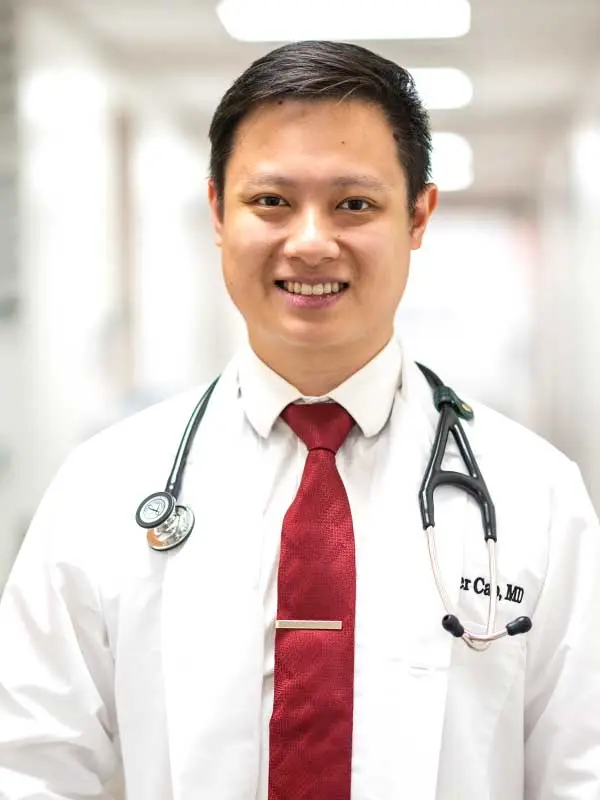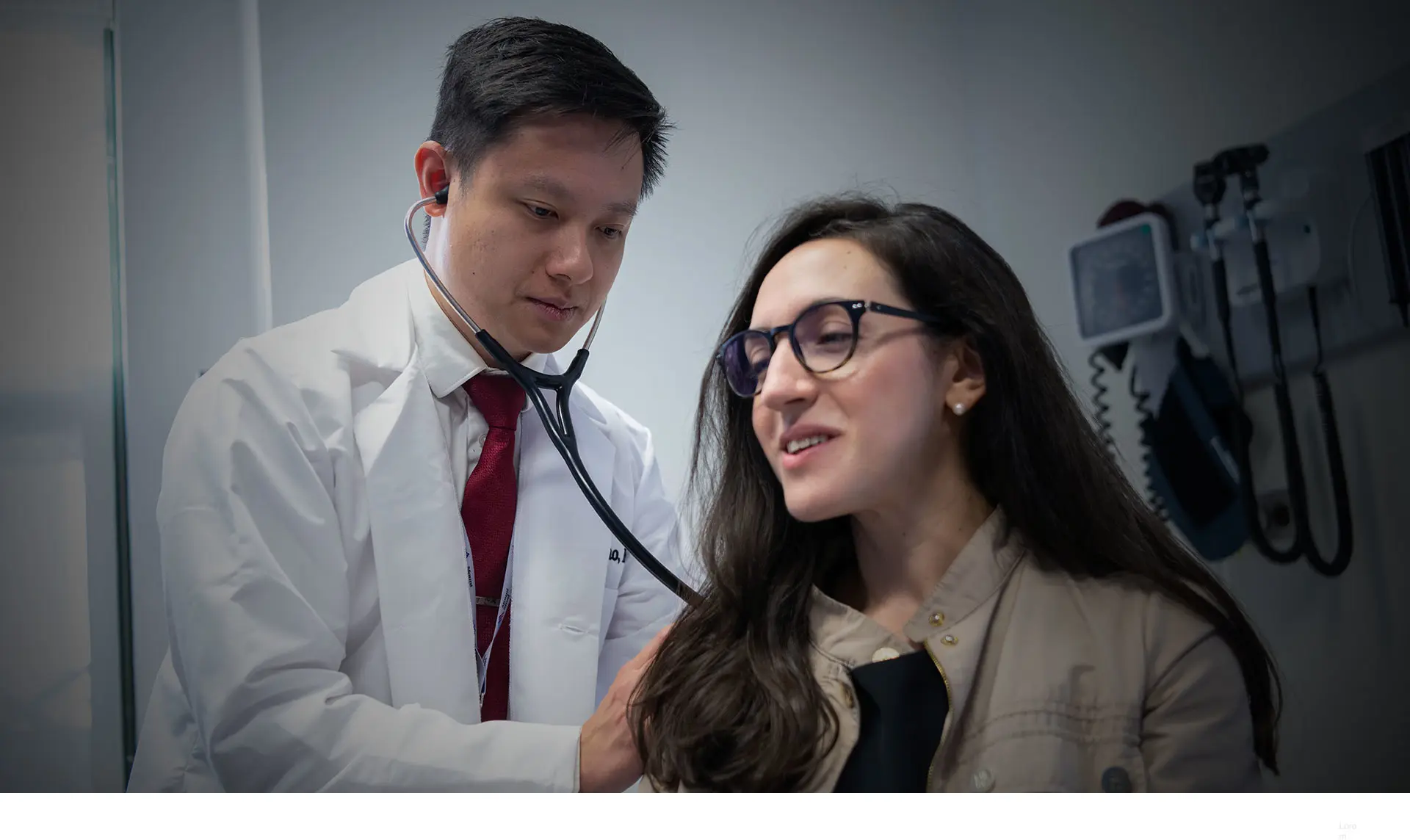The treatment for celiac disease is straightforward: Patients can prevent inflammation and damage to the small intestine by eliminating gluten from their diets.
For patients dealing with this diagnosis, however, that remedy is often easier said than done. The Celiac Disease Program at the Mount Sinai Health System improves the lives of patients through education, support, and the highest-quality medical care.
“Celiac disease can be very isolating. There’s a huge emotional burden for patients diagnosed with the disease,” says Christopher Cao, MD, Assistant Professor of Medicine (Gastroenterology) at the Icahn School of Medicine at Mount Sinai, who leads the program. “Our goal at Mount Sinai has been to develop a patient-centered program focused on resilience, thriving, and community.”
Dr. Cao developed an interest in celiac disease during his fellowship training at Thomas Jefferson University Hospital in Philadelphia, home to one of the nation’s largest celiac disease centers. After developing a passion for treating patients with the disease, he helped launch the Celiac Disease Program when he arrived at Mount Sinai in 2022.
The program is based at the Mount Sinai Doctors practice at The Mount Sinai Hospital. Through the integrated program, patients can meet with a gastroenterologist, GI nutrition physician, health psychologist, and dietitian specializing in celiac disease. That integrated approach ensures patients’ clinical, dietary, and social-emotional needs are met. “Currently, the only treatment available for celiac disease is a strict gluten-free diet, which means it’s entirely up to patients to manage their disease process,” Dr. Cao says. “To do that well, they need support that extends beyond clinical care.”
Creating a Community for Patients With Celiac Disease
The Celiac Disease Program sees patients at every stage of the disease process, whether they are establishing a new diagnosis, seeking a second opinion, or looking for help with long-term management of the disease. Often, patients are referred by primary care doctors after their blood work suggests celiac disease. Gastroenterologists at Mount Sinai can perform endoscopies to confirm the diagnosis and assess patients for conditions often caused by unmanaged celiac disease, including small intestinal bacterial overgrowth, microscopic colitis, and nutritional deficiencies.
Dr. Cao’s first appointment with a patient typically lasts 40 minutes to an hour, ensuring there is enough time to talk to the patient about their symptoms and health history, fully explain the condition, and answer questions. Typically, a patient meets with a dietitian at the same visit to discuss dietary changes and how to eliminate foods with gluten while meeting nutritional requirements. Patients can also meet with a health psychologist to manage the emotional side of celiac disease and develop strategies for making the necessary lifestyle changes.

Dr. Cao typically spends at least 40 minutes with each new patient to thoroughly discuss their condition and answer questions.
In the first year after diagnosis, patients are advised to follow up with the program every few months to monitor their health status and provide nutritional support. “After the first year, they officially ‘graduate’ from our program, and we continue to meet with them annually to make sure their disease is well managed,” Dr. Cao says.
Another important goal of the program is to educate patients and help them find a community of others living with celiac disease. To that end, the program offers quarterly webinars to bring patients together to learn about topics related to their health, such as navigating dining out in New York City or managing diet during international travel. “These webinars allow patients to gain knowledge and interact with others living with celiac disease,” he says.
Celiac Disease Research and Clinical Trials
Outside the clinic, Dr. Cao and his colleagues are involved in research to improve the diagnosis and management of celiac disease. One area of research explores the association of celiac disease with conditions such as obesity or inflammatory bowel disease (IBD). In the case of IBD, for example, the association goes both ways: Celiac patients are at higher risk for IBD, and vice versa. To learn more about that connection, the research team is studying differences in the presentation and severity of celiac disease with concomitant IBD.
The program is also involved in a large multicenter clinical trial, the TAK-101 trial, to test a new nanoparticle infusion designed to induce tolerance to gluten. “The hope is that the treatment may allow patients to consume gluten without an inflammatory response,” Dr. Cao says. With no drugs yet approved for celiac disease, it could be a major step forward for treating patients, he adds.
Other projects are focused on understanding racial and ethnic differences in testing and diagnosing celiac disease. “Historically, celiac disease has been thought of as a disease mostly in the Caucasian population, as rates are higher in certain parts of Europe. However, it is a global disease process, prevalent in about 1 percent of the population across continents,” Dr. Cao says. “We are raising awareness of celiac disease in racial and ethnic minorities and underscoring the need to test for it in all populations.”
In addition to addressing disparities in celiac disease, the program also aims to support clinicians in providing comprehensive care.
“Our program is meant to serve as a resource for the wider clinical community,” Dr. Cao says. “If there are any doubts or questions about a patient’s diagnosis or long-term management, we’re happy to lend a hand.”
Learn more about the Mount Sinai Celiac Disease Program.
Featured

Christopher Cao, MD
Assistant Professor of Medicine (Gastroenterology)
